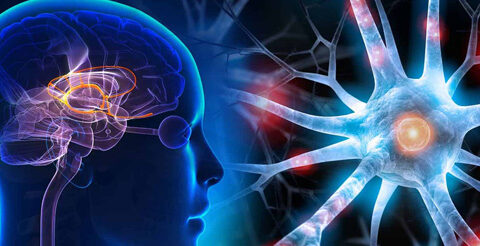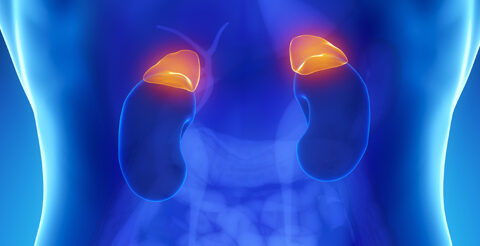ARTICLE BY: Parents from House Of Troy & Our Autism Journey
Autism Parents are not getting enough sleep!
Many children on the autism spectrum have chronic sleep problems and this contributes to parents not getting enough rest or sleep. Getting enough sleep is important for children and adults of all ages to stay in good health. It is important because that allows your body and mind to recharge and repair, leaving you refreshed and alert when you wake up, ready for another day.
During sleep, your body works to support healthy brain function and maintain your physical health status. In children and teens, sleep also helps support growth and development of their growing bodies.
There are many factors in today’s life contributing to poor sleeping habits and just one of those factors is low magnesium. Children on the Autism spectrum often show symptoms of ADHD. Research shows children with ADHD have low levels of magnesium and that supplementing with magnesium might improve ADHD symptoms.
The health effects of lack of sleep can be devastating to your body and your daily living:
- Low magnesium may be a significant factor contributing to poor sleep.
- Magnesium helps to calm both the body and the mind
- Poor sleeping habits causes Depression & Anxiety
- Sleep deprived people also have problems with balance, reflexes and motor skills
- A prolonged lack of sleep can decrease your antibody response and make you more vulnerable when you’re exposed to colds, flu or viruses.
- Adequate sleep is crucial for memory recall.
Busy lifestyles mean that many people are depleted in magnesium, yet this mighty mineral has a vital role to play in supporting healthy sleep.
Why does Magnesium Helps You Sleep?
When it comes to getting more quality sleep, there are a lot of remedies to choose from.
A healthy natural solution to getting better sleep is to incorporate magnesium, a mineral found in the body and in many foods, into our daily diet. Magnesium, along with its myriad of other health benefits, can help you have a better nights rest, fall asleep deeper and quicker, leaving you more rejuvenated for the day ahead.
Magnesium, ‘nature’s tranquilliser’, is one mineral that your body can’t afford for you to ignore.
This powerful mineral is responsible for over 300 enzyme reactions in your body.
- Magnesium is needed by every cell in the body.
- Magnesium is necessary for your brain, nerves, lungs and digestive system to function properly.
- Magnesium is essential for the synthesis of proteins.
- Magnesium is essential for the utilisation of fats and carbohydrates.
- Magnesium is essential for hundreds of enzyme systems, especially involved in energy production. Enzymes also contain Vit B6 which is not well absorbed unless magnesium is generously supplied.
- Magnesium
- Magnesium
- Along with calcium, it helps your nerves function properly.
- Magnesium is responsible for your body’s energy at a cellular level.
- Balances the effects of stress and anxiety
- Relaxes your brain and muscles
What are some of the potential causes of magnesium deficiency today?
- Even healthy foods lack the magnesium that they had years ago because the soil isn’t as rich in nutrients that’s why supplementing with a magnesium supplement is a must.
- Lack of consuming magnesium rich foods and lack of absorption can both play a role in magnesium deficiency.
- Processed, refined, and junk “foods” – A diet, which is rich in fat, sugar, salt, synthetic vitamin D, phosphates, protein, and supplemented calcium, not only is deficient in magnesium but actually increases the need for magnesium in the body.
- When you experience high levels of stress the body creates stress hormones, including cortisol, which cause a host of physical effects, all of which use up magnesium. The adrenergic (whatever involves adrenaline) effects of psychological stress induce a shift of magnesium from the intracellular to the extracellular space, increasing urinary excretion and eventually depleting body stores.
- Medications can block the absorption of magnesium.
- Diuretics and alcohol can cause magnesium to not be absorbed by the gastrointestinal tract and/or kidneys.
- Inadequate dietary intake of magnesium occurs in alcoholism, catabolic states and gastrointestinal diseases.
- Carbonated beverages and coffee are diuretics and may also contain sugar which is an additional stress on the body.
To effectively absorb magnesium we need adequate levels of other vitamins too, such as vitamin B6 and vitamin D, as well as the trace mineral selenium. For Calcium and Magnesium to be fully absorbed in the body it needs to be in an acidic solution.
Get your CAL MAG POWDER Today! – Now available at House Of Troy Online Store
The Cal Mag in powder form (a mix of Calcium Gluconate and Magnesium Carbonate) with Vitamin C (Ascorbic Acid) which makes the acid base becomes a clear solution when added into boiled water and then cooled with juice or water for consumption. It bypasses the digestive system and enters the blood stream directly, hence instant absorption.
Calcium, magnesium and phosphorous must be kept in balance. Calcium Phosphate is the basic compound of the bone structure. With all 3 present and balanced, calcium phosphate is readily deposited in the bones and this maintains strong bones.
Calcium & Magnesium Deficiency:
- Calcium Deficiency: Sets up spasms in the nerves and muscles, state of high tension.
Calcium Deficiency causes cramps and spasms. Spasms in the intestines = spastic colitis; spastic constipation. Calcium is a must where any healing process is involved as it is a basic building block. - Magnesium deficiency: Increases nervous reactions; highly strung and volatile in character; very excitable or sensitive. Magnesium is deficient in our diets because it is not easily absorbed into the plants due to fertilizers which blocks it’s uptake into the plant.
Early warning signs of magnesium deficiency may include loss of appetite, nausea, vomiting, fatigue, and weakness. As magnesium deficiency worsens, numbness, tingling, muscle contractions and cramps, seizures, personality changes, abnormal heart rhythms, and coronary spasms can occur. Severe magnesium deficiency can result in Hypocalcemia or Hypokalemia.
Slight deficiency:
- Irritable, highly strung, sensitive to noise, hyper-excitable, apprehensive, nervous, grouchiness, jitters (anxious)
More severe or prolonged deficiency:
- Twitching, tremors, irregular pulse, insomnia, muscle weakness, jerkiness, leg & foot cramps, clouded thinking, confusion, disorientation, marked depression, delirium tremens.
- Records of electrical waves of the brain, heart and muscles all become abnormal
Heart: Low magnesium, heart trouble develops with cells dying, haemorrhages and calcification of heart muscles.
Potassium cannot be retained in the heart muscles and can cause death by heart attack.
Remember: “There will always be calcium in the blood; if it is not supplied in the diet, it is withdrawn from the bones. If phosphorous quantities are very high (from high protein diets) and are imbalanced in relation to calcium, the phosphorous combines with the calcium in the blood and is lost in the urine. This can induce severe calcium deficiencies. More calcium is withdrawn from the bones = onset of osteoporosis.” – Allan Wohrnitz (BSc)
References: Nutrition advices by Adelle Davis & Allan Wohrnitz (BSc)
Additional Articles & Resources about Magnesium and why it is important to us
- The effect of vitamin D and magnesium supplementation on the mental health status of attention-deficit hyperactive children: a randomized controlled trial
- Magnesium supplementation in children with attention deficit hyperactivity disorder
- 10 Effects of Long-Term Sleep Deprivation
- Magnesium deficiency. Etiology and clinical spectrum
- Studies shows – Fluoride Exposure Increases Metabolic Requirement for Magnesium
- Book: “Drug Muggers: Which Medications Are Robbing Your Body of Essential Nutrients–and Natural Ways to Restore Them”
- Book: “The Magnesium Miracle”










Leave a comment